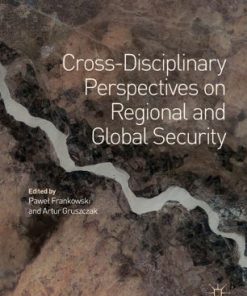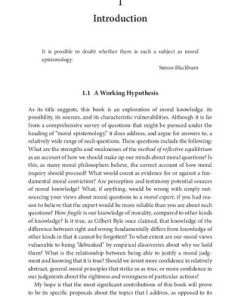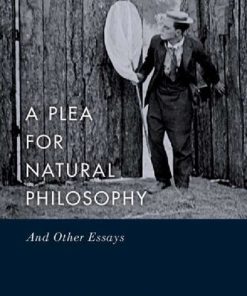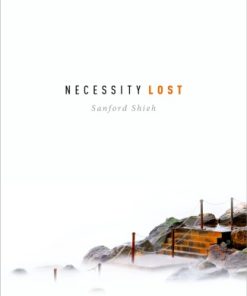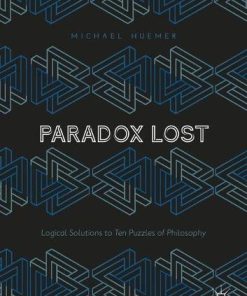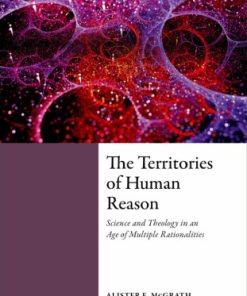Natural Philosophy On Retrieving a Lost Disciplinary Imaginary 1st edition by Alister McGrath 0192689630 9780192689634
$50.00 Original price was: $50.00.$25.00Current price is: $25.00.
Natural Philosophy: On Retrieving a Lost Disciplinary Imaginary 1st edition by Alister E. McGrath – Ebook PDF Instant Download/DeliveryISBN: 0192689630, 9780192689634
Full download Natural Philosophy: On Retrieving a Lost Disciplinary Imaginary 1st edition after payment.
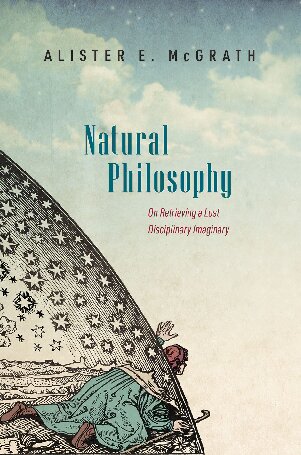
Product details:
ISBN-10 : 0192689630
ISBN-13 : 9780192689634
Author : Alister E. McGrath
Recovering the forgotten discipline of Natural Philosophy for the modern world
This book argues for the retrieval of ‘natural philosophy’, a concept that faded into comparative obscurity as individual scientific disciplines became established and institutionalized. Natural philosophy was understood in the early modern period as a way of exploring the human relationship with the natural world, encompassing what would now be seen as the distinct disciplines of the natural sciences, mathematics, music, philosophy, and theology.
The first part of the work represents a critical conversation with the tradition, identifying the essential characteristics of natural philosophy, particularly its emphasis on both learning about and learning from nature. After noting the factors which led to the disintegration of natural philosophy during the nineteenth century, the second part of the work sets out the reasons why natural philosophy should be retrieved, and a creative and innovative proposal for how this might be done. This draws on Karl Popper’s ‘Three Worlds’ and Mary Midgley’s notion of using multiple maps in bringing together the many aspects of the human encounter with the natural world. Such a retrieved or ‘re-imagined’ natural philosophy is able to encourage both human attentiveness and respectfulness towards Nature, while enfolding both the desire to understand the natural world, and the need to preserve the affective, imaginative, and aesthetic aspects of the human response to nature.
Natural Philosophy: On Retrieving a Lost Disciplinary Imaginary 1st Table of contents:
Part I. A Critical Conversation with the Tradition
1. The Origins of Natural Philosophy: Aristotle
Theōria: The Nature of and Benefits of Explanation
Observational Respectfulness and Natural Philosophy
Explaining Nature: Aristotle on Induction
2. The Consolidation of Natural Philosophy: The Middle Ages
The Universities and Early Medieval Natural Philosophy
Natural Philosophies: Christian, Islamic, and Jewish
The Decline of Aristotelian Natural Philosophy
The Utility of Natural Philosophy: Alchemy and Magic
3. Skywatching: The Natural Philosophy of Copernicus, Kepler, and Galileo
Copernicus and Tycho Brahe
Kepler on the Harmonies of Nature
Kepler’s Correlation of Theology and Natural Philosophy
Galileo: Natural Philosophy and the Extension of Human Vision
Galileo and the Language of Mathematics
4. English Natural Philosophy: Bacon, Boyle, and Newton
Francis Bacon: Natural Philosophy and the Improvement of Humanity
Bacon’s Experimental Natural Philosophical Method
Robert Boyle: Interpreter of a Baconian Natural Philosophy
Boyle on the Purposes of Natural Philosophy
Newton’s Integrative Natural Philosophy
Physico-Theology: The Religious Dimension of Natural Philosophy
5. The Parting of the Ways: From Natural Philosophy to Natural Science
The Enlightenment Reformulation of Newtonian Natural Philosophy
The Romantic Reaction against Popular Newtonianism
Objectivity: A Disengaged Account of Nature
The Transition from ‘Theistic Science’ to ‘Naturalistic Science’
Darwin: Natural Philosophy and the Status of Humanity within Nature
Thomas H. Huxley: The Separation of Philosophy and Natural Science
Part II. A Reconceived Natural Philosophy: Exploring a Disciplinary Imaginary
6. Reconceiving Natural Philosophy: Laying the Foundations
Why We Need a Critical Retrieval of Natural Philosophy
Disciplinary Specificity and the Fragmentation of Knowledge
Mary Midgley on Mapping the Natural World
Karl Popper’s Three Worlds
7. Theory: The Contemplation of Nature
Theōria: A Way of Beholding the World
Seeing Nature through a Theoretical Lens
Hans-Georg Gadamer on Theory and Practice
Natural Philosophy as a Disciplinary Imaginary
8. Objectivity: Understanding the External World
Science and the Quest for Objectivity
Thomas Nagel on the Limits of Objectivity
Scientism_ The Redundancy of Philosophy?
Neo-Confucianism_ Scientism and Natural Philosophy in Twentieth-Century China
9. Subjectivity: An Affective Engagement with Nature
Human Subjectivity: Space and Time versus Place and History
Beauty and Wonder: An Affective Engagement with Nature
Responding to Nature: Science, Poetry, and the Imagination
10. Natural Philosophy: Recasting a Vision
On Bridging Popper’s Three Worlds
Seeing though Many Eyes: A Reimagined Natural Philosophy
A Retrieved Natural Philosophy: Two Strategies
On Integrating Multiple Perspectives
From Theory to Practice: Shaping our Engagement with Nature
People also search for Natural Philosophy: On Retrieving a Lost Disciplinary Imaginary 1st:
mathematical principles of natural philosophy
institute of natural philosophy genshin
institute of natural philosophy genshin purple
mathematical principles of natural philosophy pdf
aristotle natural philosophy
Tags: Natural Philosophy, Retrieving, Disciplinary Imaginary, Alister McGrath
You may also like…
Politics & Philosophy
Cross-Disciplinary Perspectives on Regional and Global Security 1st Edition
Politics & Philosophy - Anthropology
Uncategorized
(Ebook PDF) Moral Knowledge 1st edition by Sarah Mcgrath 0192527967 9780192527967 full chapters
Politics & Philosophy - Philosophical Positions & Movements
A Plea for Natural Philosophy: And Other Essays Penelope Maddy
Poetry - American Poetry
The Menstrual Imaginary in Literature: Notes on a Wild Fluidity Natalie Rose Dyer
Politics & Philosophy - Anthropology
Necessity Lost: Modality And Logic In Early Analytic Philosophy, Volume 1 Sanford Shieh
Politics & Philosophy - Anthropology
Paradox Lost: Logical Solutions to Ten Puzzles of Philosophy 1st Edition Michael Huemer
Politics & Philosophy




